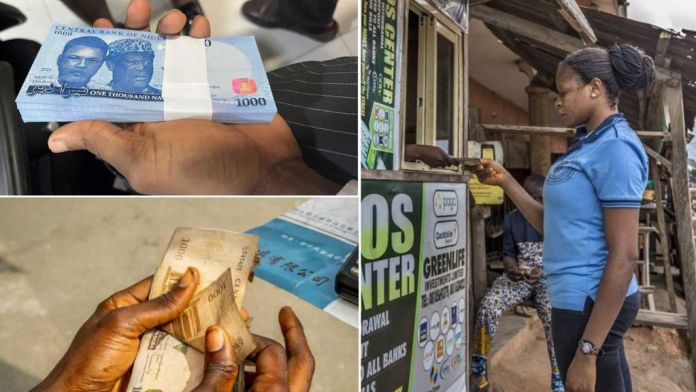By Temitope Hassan
Point of Sales (POS) operators have resorted to exploiting Nigerians as Naira scarcity bites harder across the country.
Recall that prior to the introduction of the policy, POS operators charged N100 for every N5000 (and below) cash withdrawal, but the situation has changed.
But currently, POS operators now charge between N300 to N400 on every N1000 withdrawn via the terminal.
This new measure was observed by a correspondent of the Daily Post during an attempt to make a withdrawal in Apo Resettlement area of Abuja.
While several POS operators were noticed to have shut down their businesses, the very few operating were at exorbitant rates.
In an attempt to make a withdrawal in Apo Resettlement, a POS operator told our correspondent: “We now charge N300 for every N1000 you withdraw from here, and the reason is that there is no money. Some of us have to stay long on queues in banks to use their ATM.”
Another POS operator lamented that they were buying the money.
“There is no money anywhere, some of us have to resort to buying this money, and this is one of the reasons our charges are high,” she said.
Asked if the charges are for the new naira notes alone, she said no, adding that “both old and new naira notes are the same thing; naira is very scarce now. It’s difficult to come by, so we charge N400 for every N1000 on both old and new.”
A customer identified as Dorcas, described the new policy by the Central Bank of Nigeria, CBN, as “a devilish policy.”
Stressing that the policy was of no benefit to Nigerians, Dorcas said: “This policy by the CBN is devilish because it’s of no benefit to Nigerians. I walked from Amazing Grace Plaza inside Apo Resettlement to this entrance and most of the POS outlets have closed down because there is no money.
“You have the money in the bank but can’t withdraw because of this policy, not to talk about the N300 to N400 naira charges on every N1000 withdrawal.”
Commenting on the situation, a staff of FCMB alleged sabotage.
“The only way is for the CBN to increase their supply of the new naira notes,” he said.
Source: intelregion








